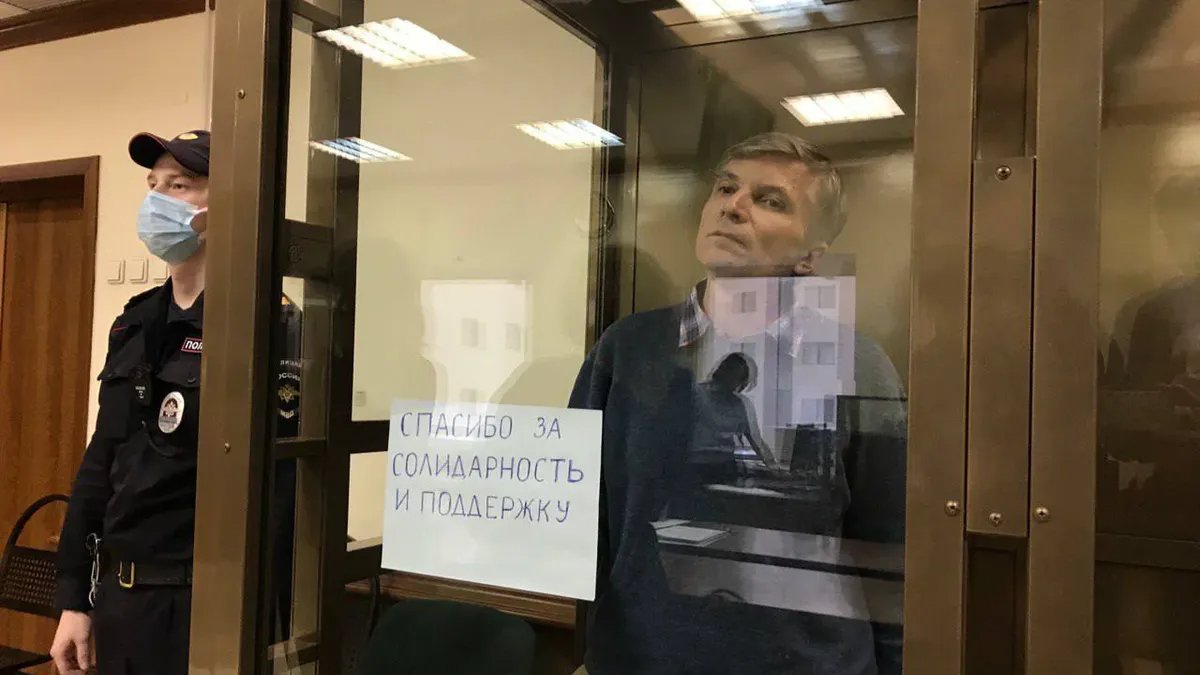Alexey Gorinov, a Moscow municipal deputy convicted for “spreading fake news about the Russian army” earlier has been transferred to the prison hospital, says a Telegram channel created in his support.

Photo: Freedom to Alexey Gorinov Telegram channel
“Alexey has been transferred into a hospital in the prison he is serving his term in,” reports the channel.
There are no details regarding Gorinov’s condition as of now. His lawyers reported earlier that their client had not been receiving required medical aid in prison.
The hospital in Gorinov’s prison is notorious and also known as a torture chamber. Maxim Ivankin, another political prisoner, reported that he had been forced to confess to murder he did not commit after being tortured and threatened with rape. In the hospital, he was beaten up numerous times by pro-administration inmates. This lasted nine days before Ivankin turned himself in.
Gorinov fell ill on 8 December. He spent two days in the prison’s medical wing and was eventually discharged. Neither a doctor nor a paramedic saw him while he stayed there. Later, during a meeting with his lawyers, Gorinov said that he wouldn’t “even last half a year in such a cold and damp place with no medical aid”.
It was reported in the aforementioned Telegram channel earlier that Gorinov had been complaining about “hunger, cold, lack of hot water, lack of opportunity to go to bed before lights out despite having temperature, cough, and chronic short breath”.
Gorinov’s lawyers tried meeting the warden and the chief doctor of the prison, but were denied the meeting and offered to come back again in a week’s time.
A Moscow district court sentenced Gorinov to seven years in prison on 8 July. His term was reduced by one month. The judge Olesya Mendeleeva found Gorinov guilty of “preliminary arrangement by a group of persons to spread fake information” about the Russian Armed Forces ”on grounds of hatred and hostility, through abuse of office”. He used to call the events in Ukraine a “war” instead of the “special military operation” which the prosecutor believed to be contradictory to “the official information of the Defence Ministry”.
